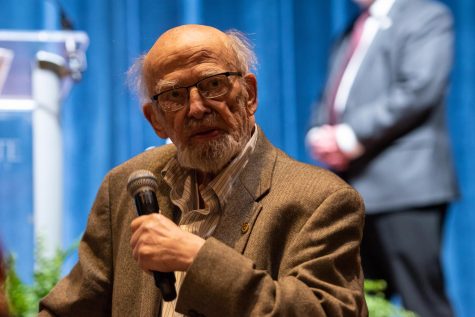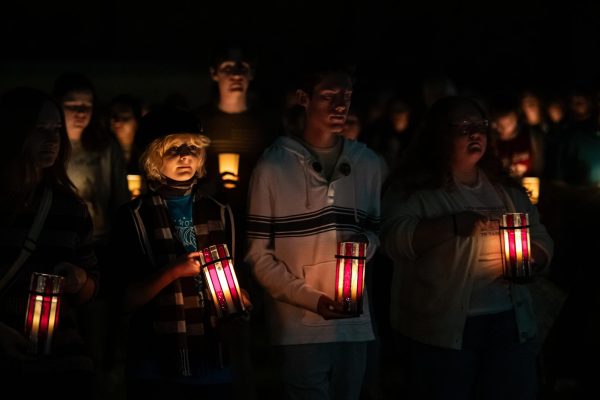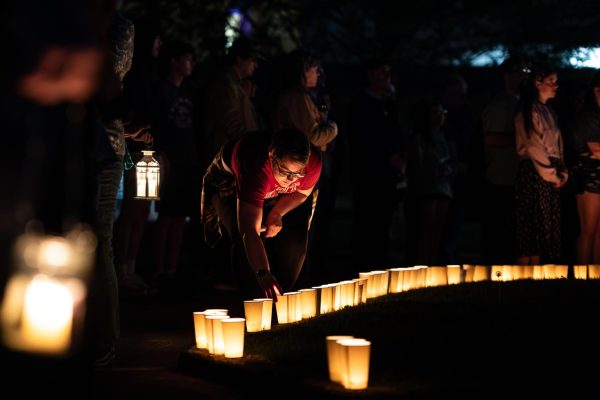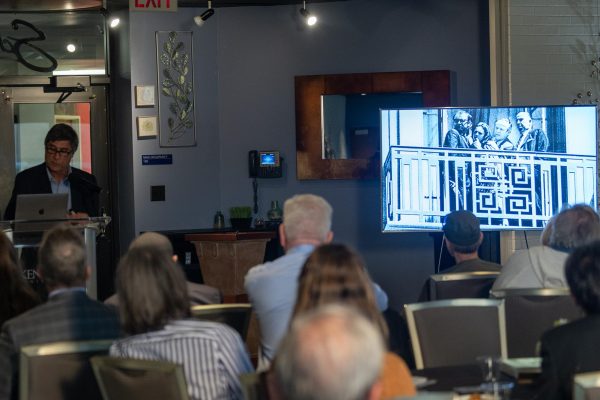OPINION: Forever Brighter: Fundraiser or Student Betterment?
April 25, 2023
In October of 2021 Kent State publicly began its multi-year campaign Forever Brighter, the “campaign of brilliant proportions,” prioritizing student success, expanding university initiatives and “building the future.”
As the campaign slowly ends with only two main timeline events left, there’s a lot to reflect on when looking back at what’s been established thus far.
Honing student success, university initiatives and “building the future,” Kent State has introduced initiatives such as the Design Innovation Initiative and the under-construction Ambassador Crawford College of Business and Entrepreneurship’s Crawford Hall, while all the more introducing scholarships, such as the Flashes Go Further scholarship program.
Though new initiatives are important and necessary when entering new eras of education, such as now, programs like the Flashes Go Further scholarship have begun to strike me in a negative light.
As an incoming freshman, the amount I received from the scholarship program was hefty. A large-ish scholarship that I didn’t have to do much for; just file my FAFSA. Easy. It was appreciated and helped both me and my family, but as I continue at Kent State the amount I’ve received has slowly dissipated into lower amounts year after year.
Though free money is always welcomed, over time I have begun to take the fund less seriously, as it doesn’t take as much pressure off as it once did when a semester bill was invoiced.
It’s no secret college students are not wealthy. We’ve all heard the dorm ramen noodle jokes.
When the university announced its Emergency Grant Fund, another Forever Brighter funded resource, students were eligible to receive up to $3,000 in aid in light of COVID-19. Important — during its time of being available, some students were having trouble getting an answer to securing the funds when needed. With long, drawn-out periods of students hearing nothing about securing some funds, it was of course happening in times when these students needed it most.
From the lack of food security to needing a new set of tires, there were many options students could check on the application for the funds. Seemingly all crucially important to everyday life.
The Emergency Grant Fund quickly extinguished after about two years as it was through the Higher Education Emergency Relief Fund (HEERF) grant funds through the Coronavirus Aid, Relief, and Economic Security Act. The university sent an email to students announcing the closure of the program November 28, 2022.
The email stated any open applications in the system would be closed.
Students who had applications in for the grant funding were likely in great need of these funds and yet were just met with an email with links to other resources on campus essentially putting these students in need back at square one.
Though COVID-19 may not be at its highest anymore it still continues to affect those who cannot work when testing positive, and having the Emergency Grant Fund, or something similar relating to COVID-19, has the potential to help students when in an “emergency.”
With a goal of raising $350 million (98% of which is raised), the university has enticed students and those who donated, or will potentially donate, with advertisements digging deep into rhetoric. From storytelling to shots of athletic events, Kent State has tried to showcase what Kent State “means,” but as a current student, it always felt performative.
Yes, there is always room to grow and change as a university, but there’s only so much that new buildings and rhetoric-filled promo videos can do to make everyone feel better.
Students are number one. Always. But, instead of creating a façade to make it seem as if we’re succeeding (we are succeeding, but not always), it’s things such as emergency grant funds and scholarship funds that make students feel appreciated. Or simply, that we exist.
Students are the backbone of universities, not drawn-out, superficial campaigns.
Dylan Walker is an opinion writer. Contact him at [email protected].

























